 | TODAY IN SCIENCE HISTORY NEWSLETTER - 3 MAY |
| Feature for Today |
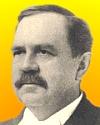 On 3 May 1844, Wilbur Olin Atwater was born, an American scientist who advanced agricultural chemistry in the U.S. On 3 May 1844, Wilbur Olin Atwater was born, an American scientist who advanced agricultural chemistry in the U.S.He established the government's first agricultural experimental station in America, and promoted the spread of similar institutions throughout the U.S. The hundreds of experiments he completed in his lifetime, and the improvements in the equipment and measuring devices he implemented, set the stage for modern analysis of the composition and nutritive value of foods. To know more about this diligent scientist, you can read this Obituary for Wilbur Olin Atwater from the American Chemical Journal of 1907. |
| Book of the Day | |
| |
| Quotations for Today | |
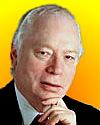 | "It is even harder to realize that this present universe has evolved from an unspeakably unfamiliar early condition, and faces a future extinction of endless cold or intolerable heat. The more the universe seems comprehensible, the more it seems pointless." |
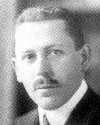 | "A considerable number of persons are able to protect themselves against the outbreak of serious neurotic phenomena only through intense work." |
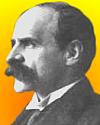 | "A mouse can fall down a mine shaft a third of a mile deep without injury. A rat falling the same distance would break his bones; a man would simply splash ... Elephants have their legs thickened to an extent that seems disproportionate to us, but this is necessary if their unwieldly bulk is to be moved at all ... A 60-ft. man would weigh 1000 times as much as a normal man, but his thigh bone would have its area increased by only 100 times ... Consequently such an unfortunate monster would break his legs the moment he tried to move." Expressing, in picturesque terms, the strength of an organism relative to its bulk. |
| QUIZ | |
| Before you look at today's web page, see if you can answer some of these questions about the events that happened on this day. Some of the names are very familiar. Others will likely stump you. Tickle your curiosity with these questions, then check your answers on today's web page. | |
| Births | |
 |  Steven Weinberg, born 3 May 1933, shared the 1979 Nobel Prize in Physics with Sheldon Glashow and Abdus Salam. Steven Weinberg, born 3 May 1933, shared the 1979 Nobel Prize in Physics with Sheldon Glashow and Abdus Salam. What was Weinberg's Nobel-winning contribution to physics? What was Weinberg's Nobel-winning contribution to physics? |
 |  Sir George Paget Thomson, born 3 May 1892, was an English physicist who won his Nobel Prize in 1937, with Clinton Davisson of the U.S. They worked with a certain behaviour of electrons. Sir George Paget Thomson, born 3 May 1892, was an English physicist who won his Nobel Prize in 1937, with Clinton Davisson of the U.S. They worked with a certain behaviour of electrons. What did they demonstrate about electrons? What did they demonstrate about electrons? |
| Deaths | |
 |  Manuel Elizalde, (1937? - 1997 was a Philippine official, amateur anthropologist - and - hoaxer, who claimed to have discovered a primitive tribe, the Tasaday, in the rainforest of Mindanao. One of his claims for their remarkable way of life was that their language even lacked a certain word. Manuel Elizalde, (1937? - 1997 was a Philippine official, amateur anthropologist - and - hoaxer, who claimed to have discovered a primitive tribe, the Tasaday, in the rainforest of Mindanao. One of his claims for their remarkable way of life was that their language even lacked a certain word.  What word, he said, didn't exist in the Tasaday language? What word, he said, didn't exist in the Tasaday language? |
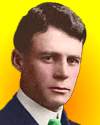 |  Howard Ricketts (1871-1910), an American pathologist, died of typhus, which was one of the diseases for which he identified the causitive organism the mode of transmission. Another of the diseases with which he worked is commonly known by a name that is four words long. Howard Ricketts (1871-1910), an American pathologist, died of typhus, which was one of the diseases for which he identified the causitive organism the mode of transmission. Another of the diseases with which he worked is commonly known by a name that is four words long.  What is the common name of this disease? What is the common name of this disease? |
| Events | |
 |  On 3 May 1968, Dr Denton Cooley performed a certain operation which was a first to be successful in the United States. On 3 May 1968, Dr Denton Cooley performed a certain operation which was a first to be successful in the United States. Can you name the body organ on which he operated? Can you name the body organ on which he operated? |
| Answers |
When you have your answers ready to all the questions above, you'll find all the information to check them, and more, on the May 3 web page of Today in Science History. Or, try this link first for just the brief answers. Fast answers for the previous newsletter for May 2: Benjamin Spock; mosquito; intelligence; Leonardo da Vinci; with the battery wires dipped in the water, he observed electrolysis; Ben Franklin. |
| Feedback |
 If you enjoy this newsletter, the website, or wish to offer encouragement or ideas, please send feedback by using your mail reader Reply button. If you enjoy this newsletter, the website, or wish to offer encouragement or ideas, please send feedback by using your mail reader Reply button. |
--
If you do not want to receive any more newsletters, this link
To update your preferences and to unsubscribe visit this link
If you do not want to receive any more newsletters, this link
To update your preferences and to unsubscribe visit this link
! !




Δεν υπάρχουν σχόλια:
Δημοσίευση σχολίου